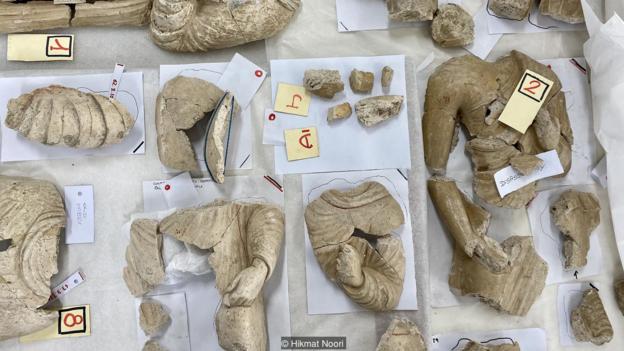Located in the far south-western corner of Kabul, nestled between the distant snow-capped peaks of the Hindu Kush mountains and the broad Kabul River, the National Museum of Afghanistan stands as one of the world’s greatest testimonies of antiquity.
With a collection spanning 50,000 years from prehistoric relics to Islamic art, the museum highlights Afghanistan’s rich history at the crossroads of the ancient world. It has also survived decades of conflict – from Soviet occupation to civil wars to Taliban control – during its 89-year history.

“This country is rich with heritage sites and structures,” said museum director Fahim Rahimi, as he showed me around the hulking grey cement structure’s dimly lit first floor. But as I followed him up a staircase leading to the second floor, exhibits ranging from 4th-Century Greek art to Islamic artefacts from the Ghaznavid dynasty in the 12th Century AD revealed themselves. “This country [connected] Central Asia, South Asia and the Middle East. There was diversity here and these people [of different cultures] had [left] their legacies here.”
In each direction we had a different military group fighting one another, with the museum at the centre
Yet, because of the collection’s immense value and the building’s location next to the city’s iconic Darul Aman royal palace, the museum and its artefacts have been repeatedly threatened, plundered or destroyed by the successive regimes that have fought to control the Afghan capital. Gold jewellery, weapons and coins from the 1st Century AD were hidden during the Soviet invasion in 1979. Following Soviet occupation in 1989, the museum was caught in the crossfire as various mujahideen guerrilla groups vied for power and control of Kabul in the early 1990s. In 1993, a rocket slammed into the museum’s roof, destroying a 4th-Century AD painting and burying much of its ancient pottery and bronzes. In 1997, a second rocket struck the building. And by the late 1990s, roughly 70% of the museum’s remaining artefacts had either been looted or destroyed.
